
Speaker:
Josiah Hester
Date:
2022-09-29 12:30:00
Location:
TSRB Ballroom
Batteries Not Included: Reimagining Computing for the Next Trillion Devices
ABSTRACT
For decades our smart devices, from wireless sensor networks to FitBits, have generally assumed stable, reliable power from a battery or wall outlet. These devices are exploding in numbers and quickly becoming the foundational data collection platforms used to inform societal and personal scale decisions. Unfortunately, the battery dependency of these devices prevents scaling (because of bulk, expense, and maintenance) and contributes to existing global e-waste problems. This talk explores an alternative; instead of relying on energy stored in a battery, harvesting energy from the surrounding environment; however, this unstable energy supply means that these devices compute intermittently through many power failures. This new paradigm of sustainable computational things has required a rethinking of hardware, software design, and tool creation– yet it has also opened up incredible new avenues to deploy sustainable data science infrastructure, health sensing, and reimagine education at scale. I'll describe advances in making these devices more useful in the context of motivating data-science applications our lab has worked on: including late-breaking work on smart face masks, a system that enables novices to program intermittently powered devices with Python or Block-based languages, and large scale environmental monitoring.
BIO
Josiah Hester holds the Allchin Chair and is Associate Professor of Interactive Computing and Computer Science at Georgia Tech. Josiah was previously at Northwestern as an Assistant Professor. He works in intermittent computing and battery-free embedded computing systems. He applies his work to health wearables, interactive devices, and large-scale sensing for sustainability and conservation, supported by multiple grants from the NSF, NIH, and DARPA. He was named a Sloan Fellow in Computer Science and won his NSF CAREER in 2022. He was named one of Popular Science's Brilliant Ten, won the American Indian Science and Engineering Society Most Promising Scientist/Engineer Award, and the 3M Non-tenured Faculty Award in 2021. His work has received six Best Paper type Awards and seven Best Presentation type Awards, and featured in the Wall Street Journal, Scientific American, BBC, Popular Science, Communications of the ACM, and the Guinness Book of World Records, among many others.
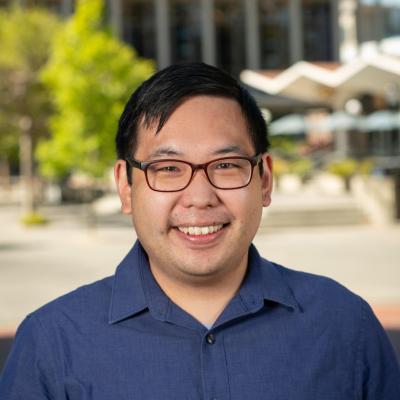
Speaker:
Richmond Y. Wong
Date:
2022-09-22 12:30:00
Location:
TSRB Ballroom
Ethics Work: Engaging Technology Values and Ethics through Design
ABSTRACT
Growing public discussions, legislative actions, and worker actions call for greater consideration of social values and ethics during technology development. In response, approaches such as compliance checklists have been developed to address these issues. However, fully addressing ethical issues in technology systems requires approaches beyond prescriptive checklists, also needing a broader range of modes of action across different stages of technology development and use.
In this talk, I report on projects that investigate different modes of engaging ethical concerns in design. One project uses speculative design probes to prompt conversations with technology professionals about privacy and surveillance in Internet of Things technologies in various social contexts. Another focuses on the work practices of a group of North American user experience (UX) professionals at large technology companies. These professionals see addressing social values and ethical issues as part of their everyday UX work. They also aim to create change at group or institutional levels from their positionalities within large corporations, with mixed success.
Throughout the talk, I draw out several relationships between design and ethics that can help engage in surfacing, discussing, and addressing values and ethical issues, including: design as a form of ethical provocation; design as a form of labor to address ethical issues; and design as a research method and reflective practice. This research points to a broader set of modes of engagement that can be used to consider values and ethical issues during technology design research and practice.
BIO
Richmond Wong is an Assistant Professor in Digital Media at the School of Literature, Media, and Communication. His research focuses on understanding the social values, ethical issues, and work involved in technology production and use. He studies how technology professionals address ethical issues in their work. He also develops design-centered approaches to engage groups that create or are impacted by digital technology, to proactively discuss and consider ethical issues related to technology such as privacy or fairness. Richmond's work utilizes qualitative and design-based methods, drawing from science and technology studies, speculative and critical design, and human-computer interaction. He completed his Ph.D. at the University of California Berkeley School of Information.

Speaker:
Augusto Opdenbosch
Date:
2022-09-01 12:30:00
Location:
TSRB Ballroom
Using the Virtual Proving Ground (VPG) to Expedite and Validate the Creation of Autonomous Solutions
ABSTRACT
Background: Trimble is committed to delivering autonomy solutions that bring value to our customers faster than ever before. But creating autonomy solutions is not an easy task. These new technologies need to control real equipment out in the real world safely and efficiently. One of the most difficult challenges is getting access to the real machines to test the latest build, validate algorithms or verify that multiple components integrate correctly. Another challenge is access to ground truth. When data is collected in the field, one has to also obtain the best possible data that represents the “truth”. Any errors in your ground truth data will affect the accuracy of the estimated efficiency of the solution.
One of the technologies that has been identified as an enabler for creating complex solutions is simulation. For the past eight years, Trimble has promoted the Virtual Proving Ground as a way to optimize and share the benefits of high-fidelity simulations.
Problem Statement: Even though there is a general consensus that simulation can solve these problems, it can also raise other challenges. One of the most critical ones is that there is little time between the moment when stakeholders decide that a simulation system needs to be used in a project and the moment when developers and testers need to have access to the actual simulator.
Synopsis: In this presentation, we will share the way the virtual proving ground (VPG) is being used to expedite the development of several autonomy projects in Trimble. The presentation will show examples of several custom simulators created with a just- in- time approach to deliver virtual equipment with hardware in the loop to testers, developers and stakeholders. Finally, we will present an overview of the latest and future upgrades of the VPG tools that have enabled the Trimble autonomy simulation team to deliver and continue to produce high fidelity solutions in record time.
BIO
Augusto received a Bachelor's Degree in Mechanical Engineering, a Master’s Degree in Civil and Environmental Engineering and a Ph.D. in Computer Graphics from the Georgia Institute of Technology. He has over 30 years of experience in research, development and implementation of complex dynamic virtual environments.
He pioneered the use of Virtual Reality in construction simulation applications while working as a research engineer and post-doctoral fellow from 1994 to 1997 at Georgia Tech. He served as senior research engineer at Spectra Precision Software from 1997 to 2000, where he developed Terravista, Terramodel Visualizer and the Virtual Environment Manager SDK. In 2000, he co-founded XYZ Solutions, Inc. where he led the development team that created XYZ World, a real-time publish-subscribe 3D monitoring suite. After XYZ Solutions was acquired by Trimble in 2006, he started working as a senior research engineer focusing on simulation and visualization projects for several Trimble divisions. In 2011, he pioneered the use of Graphics Processing Units (GPUs) to accelerate image processing and point cloud colorization and was invited to demonstrate the potential of GPU computing to the Trimble Board of Directors. In 2013, Augusto introduced the Virtual Proving Ground (VPG), a comprehensive simulation framework that can be used to propose and test the validity of ideas and also to develop and promote products. Over the last decade, VPG has been used in Building Construction, Geospatial, Mining, Forensics, Civil Engineering Construction, CTCT, ICT, and Ag projects. In 2019, Augusto joined Trimble Autonomous Solutions (TAS) and became the product owner of VPG. He currently leads the simulation team in TAS which is responsible for the development of simulation tools for autonomy projects.
He holds a Caterpillar patent, eight Trimble patents, and received a Trimble Innovation Award for his work on Corkscrew (a parametric mine design software). During the 2017 Trimble Global Hackathon, Augusto led the “iCSI” team and received the grand prize award. He also led the “Field of Dreams” team during the 2021 Trimble Global Hackathon which won the Digital Transformation category award.

Speaker:
Keith Edwards
Date:
2022-08-25 12:30:00
Location:
TSRB Ballroom
2022 GVU Center Overview and Funded Research Projects
ABSTRACT
In the first GVU Brown Bag Seminar of the academic year, Keith Edwards, GVU Center Director and Professor of Interactive Computing, will kick off our talk series with an overview of the GVU Center detailing its unique resources and opportunities, and previewing some of the events coming up this semester.
Also, each year, the GVU Center and IPaT announce funding for the Engagement Grants, which support early stage work by Georgia Tech researchers. This year’s winners will give brief overviews of the work they will be doing over the coming academic year.
Unfortunately due to technical issues (our first livestream in over 2.5 years!) no recording is available from this event.
BIO
Keith Edwards is a Professor in the College of Computing at Georgia Tech and Director of the GVU Center. His research interests focus primarily on driving human-centered concerns into core computing infrastructure. He is a pioneer in the exploration of human-centered perspectives on computer networking, particularly in the home and has been active in developing more usable approaches to information security systems. Lately, his research has expanded into a number of explorations of the social impacts of computing technology, and understanding how technology can support the work of non-profits and NGOs. While he is a technologist at heart, he enjoys working with designers, as well as ethnographers and other social scientists.
Video not available for this event.
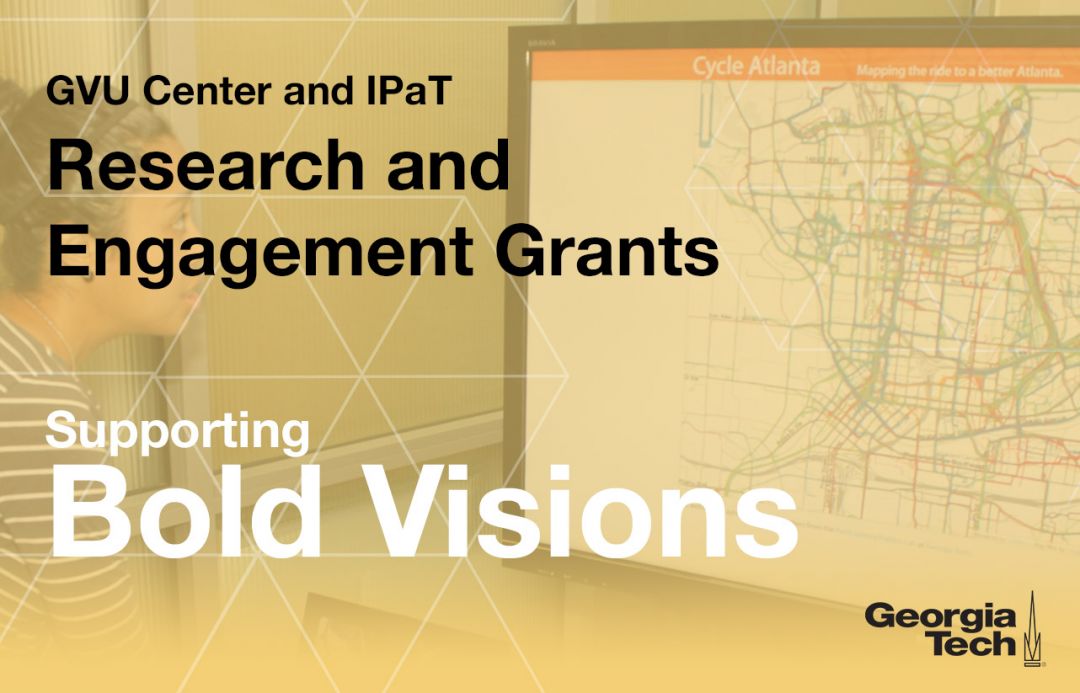
Speaker:
Anh-Ton Tran, Lisa Marks, Noah Posner, Anirudh Sarma, and Manasvini Sethuraman
Date:
2022-04-21 12:30:00
Location:
BlueJeans Events
2021 Research and Engagement Grant Winners
Counter-Institutional Data Accomplices
Project Title: Court Eviction Data as a Boundary Object for Housing Work with Carl DiSalvo [Interactive Computing], Elora Raymond [City and Regional Planning], and Anh-Ton Tran [Interactive Computing]
Housing costs in Atlanta have increased nearly 28% since the start of the pandemic. Meanwhile, institutional investors and Private Equity firms are snatching up more property and operating as landlords across communities of color, particularly in Atlanta. This reinscribes historical cycles of racial dispossession and inequity. How might computing scholars, with our disciplinary expertise in data, complement the fight for housing as a human right? Particularly when we live in an age where data is used as a scaffold to the commodification of housing? In this work, we present our findings and reflections working with a local housing activist-non-profit: Housing Justice League. We first describe and analyze the data practices volunteering and technically managing a remote, community outreach tool for tenants facing eviction and seeking organizing support. We then interpret the work of Housing Justice League through the lens of care, identifying home-brewed databases and data fragmentations as negotiations between care and efficiency. We argue that care is enacted through the assemblage of the technical systems, and present tinkering as an alternative approach to developing data practices. Understanding how housing activists use data is a prerequisite to consider aiding and abetting social movement work with data. We conclude by sharing our most recent endeavors to utilize and couple institutional eviction data with grassroots data to inform organizing initiatives. We present a preliminary case on why corporate landlords exacerbate housing instability and how data can support future tenant organizing work.
Creating E-Textiles Across Disciplines
Project Title: E-Textile Workshop Series with Lisa Marks [Industrial Design] and Noah Posner [Industrial Design]
GVU is preparing to open an exciting new lab focused on the area of E-textiles. This lab focuses on a rapidly emerging field that will lead to technological innovation for wearables, home goods, healthcare, and transportation. To maximize this field’s potential, we must have students trained in both the hardware and coding as well as the fabric structure and making methods. This Engagement Grant has funded the development of a series of 3 workshops (weaving, knitting, and CNC embroidery), each involving a discussion of the textile qualities and history, a hands-on demonstration and student creation of the textile, coding and implementation of electronic sensors, and a brainstorming session of potential uses of the methods covered in a variety of fields.
Internet Connection, Disconnection, and Everything In-Between
Project Title: Edge Computing for Bringing Smart Services to Underserved Urban Communities with Kishore Ramachandran [Computer Science], Ashutosh Dhekne [Computer Science], Manasvini Sethuraman [Computer Science], and Anirudh Sarma [Computer Science]
Today we are substantially dependent on centralized infrastructure (aka Cloud based services such as Netflix, Uber, YouTube, Coursera, Google Maps, etc.) for most of our everyday activities including learning, hailing a ride, restaurant suggestions in a neighborhood, etc. Many of our day-to-day activities depend on smart services made available to our fingertips from the cloud —be it participating in school, homework submission, job hunting, or grocery shopping. Studies have shown that access to the Internet (connection speed, duration of connectivity, and cost of connectivity) influences the way people search for jobs or do homework which in turn affects quality of life. While Internet penetration continues to be on the rise in densely populated urban areas, there continues to be a section of society where reliable and good Internet access is still not the norm. In urban areas, lack of access to the Internet is often correlated with lower income. We engaged with local leaders, public schools and non-profits to understand the internet infrastructure in Atlanta’s Westside, especially from the education standpoint. We present some of our findings, along with proposals for low-cost self-sustainable technological solutions to improve internet penetration in the neighborhood, without necessarily relying on increasing the number of internet subscriptions.
Bio:
Counter-Institutional Data Accomplices
Anh-Ton Tran is a PhD student advised by Dr. Carl DiSalvo in Human Centered Computing at Georgia Tech’s School of Interactive Computing. His current research focuses on institutional and community eviction data. He studies how data acts as infrastructure for institutions and governments that coordinate their work. He also studies how data can be used to support and build community power through tenant organizing, and how data can be a form of participatory "institutioning."
Creating E-Textiles Across Disciplines
Lisa Marks is an Assistant Professor in Industrial Design specializing in developing new technological adaptations and applications for traditional textile techniques. Her unique pedagogy aims to diversify material culture in Industrial Design and highlight how issues surrounding gender, class, and race have influenced Design throughout history. Her work is in the permanent material collection at the University of Pennsylvania and has shown at design weeks in New York, Milan, India, and Bangkok. She has won the 2019 International Grand Prix Lexus Design Award.
Noah Posner is a research scientist with the IMAGINE Lab and lab manager of the Interactive Product Design Lab (IPDL) in the School of Industrial Design. His focus is on creating interactive experiences that leverage physical interaction. He holds degrees in Industrial Design, Mechanical Engineering and an M.S. in Human-Computer Interaction. His research involves creating rich physical interactions, designing and fabricating interactive devices using CAD and Rapid prototyping technologies, and developing educational tools and workshops for STEAM learning that focus on utilizing hands-on learning with intentionally designed artifacts. He also teaches courses in Physical Prototyping for Human-Computer Interaction and Interactive Products for Industrial Design.
Internet Connection, Disconnection, and Everything In-Between
Anirudh Sarma is a 2nd year PhD student at the Embedded Pervasive Lab and advised by Dr. Kishore Ramachandran. He is interested in exploring edge-centric mechanisms to optimize the data plane.
Manasvini Sethuraman is a 3rd year PhD student in the Embedded Pervasive Lab led by Dr. Kishore Ramachandran. Her research interests are primarily in design of edge/cloud computing systems focused on intermittent connectivity to the Internet.
Video is not available for this event.

Speaker:
Diansheng Guo
Date:
2022-04-14 12:30:00
Location:
BlueJeans Events
Mobility Data Analytics—Challenges, Methods, and Applications
ABSTRACT
The analyses of mobility data are involved in a wide range of domains such as demography, public health, urban planning, transportation, business, and biology. Mobility data consists of a set of moving objects, each having a sequence of sampled locations as it moves across space and time. In addition to a general overview of challenges for mobility analytics, this talk focuses on introducing a set of methodologies for mobility data mining, visualization, prediction, optimization, and their real-world applications.
BIO
Dr. Diansheng Guo is currently the Chief Scientist and Technology Committee Chair at Tencent Map, Tencent. Prior to joining Tencent, he was Professor of Geography at the University of South Carolina. He received his B.S. degree from Peking University, M.S. from Chinese Academy of Sciences, and Ph.D. from the Pennsylvania State University. Dr. Guo has been conducting research in the fields of GIScience, big data analytics, information visualization, and recently in geospatial technologies in industry. He received the NSF CAREER Award in 2008. He was the President (2012) and Chair of Board (2013) for the International Association of Chinese Professionals in Geographic Information Sciences (CPGIS).
Video is not available for this event.
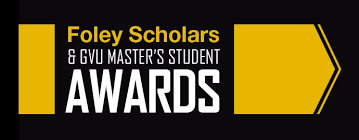
Speaker:
Nivedita Arora, Upol Ehsan, Qiaosi (Chelsea) Wang
Date:
2022-04-07 12:30:00
Location:
BlueJeans Events
Foley Award Winners
Nivedita Arora, Designing for Sustainability in Computing: Self-Powered Computational Material
In this era of burgeoning IoT devices, we measure computing progress with speed, power, and reliability improvements but often forego thinking about its environmental impact. A new sustainable way of thinking about computing across the full lifecycle -- including manufacturing, operation, and disposal -- is necessary to meet the present needs without compromising the wellbeing of the future generations. Inspired by this, during my Ph.D. I have built ‘Self-powered Computational Material’ that enables sustainable operation without toxic batteries. I will showcase this with an example of an easy-to retrofit sticky note that can sense human interactions like speech, movement, and touch and provide feedback by harvesting power from the surroundings. Finally, I will chart how designing for sustainability requires a high-interdisciplinary mindset and rethinking the entire computing stack from the material level.
Upol Ehsan, Human-Centered Explainable AI: Thinking Outside the Black-Box of AI
As AI systems power critical decisions in our lives, they need to be held accountable to mitigate an unjust AI-powered future. One way to hold AI systems accountable is to make them explainable– to understand the “why?” behind their decisions. Implicit in Explainable AI (XAI), is the question: explainable to whom? The “who” governs the most effective way of describing the “why” behind the decisions. Critical insights into how best to explain AI’s black box lie outside it; because that’s where the humans are.
In this talk about AI, humans will take center stage. I will discuss three aspects of the journey towards Human-Centered Explainable AI (HCXAI), a departure from the algorithm-centered roots of XAI. First, I will share how people’s perceptions of AI agents explaining their actions in plain English shaped the foundations of how we think about who the humans are in Human-centered Explainable AI (HCXAI). Second, I will chart the visions of HCXAI by bridging insights from Critical Theory and Human Computer Interaction (HCI) to question the status quo of XAI design and expose intellectual blind spots. Third, I will apply the HCXAI lenses to highlight an intellectual blind spot in the algorithm-centered narrative of XAI and share how we addressed it by introducing the concept of Social Transparency in AI– a sociotechnically situated concept that expands the boundaries of XAI by incorporating socio-organizational contexts into AI systems. I will share key lessons from this journey towards HCXAI including missed turns and design implications around improving explainability, calibrating trust, and fostering decision-making.
Qiaosi Wang, Mutual Theory of Mind for Human-AI Communication
From navigation systems to smart assistants, we communicate with various types of AI on a daily basis. At the core of such human-AI communication, we convey our understanding of the AI system’s capability to the AI through utterances with different complexities, and the AI conveys its understanding of our needs and goals to us through system outputs. However, this communication process is prone to failures for two reasons: the AI systems might have the wrong understanding of the user and the user might have the wrong understanding of the AI. In my work, I posit the Mutual Theory of Mind framework, inspired by our basic human capability of “Theory of Mind”, to enhance mutual understanding in human-AI communication. My work takes place in the context of online education where AI agents have been widely deployed to offer informational and social support to online students. In this talk, I will discuss the three components of Mutual Theory of Mind in human-AI communication: the construction, recognition, and explanation of AI’s Theory of Mind. I will then describe in detail about one of my studies that leveraged linguistic cues in human-AI dialogues to construct a community’s understanding of an AI agent.
Bio:
Nivedita Arora is a computer science Ph.D. candidate in the School of Interactive Computing at Georgia Institute of Technology, advised by Prof. Gregory Abowd and Prof. Thad Starner. Her research focuses on re-imagining the future of mobile and ubiquitous computing by embracing an alternative view of computing where the physical surfaces would be covered with self-powered computational material. Her research has won an ACM IMWUT distinguished paper, two best poster awards (UIST, MobiSys), research highlight (SIGMOBILE GetMobile magazine, Communications of the ACM), and Fast Company Design Innovation Competition (Honoree Winner). In recognition of her work on sustainable computational materials, she was named the winner of the ACM Gaetano Borriello Outstanding UbiComp Student Award and Georgia Tech’s GVU Foley Award for the year 2021. In addition, she was recently part of the 2021 cohort of Rising Stars in EECS at MIT.
Upol Ehsan cares about people first, technology second. He is a doctoral candidate in the School of Interactive Computing at Georgia Tech and an affiliate at the Data & Society Research Institute. Combining his expertise in AI and background in Philosophy, his work in Explainable AI (XAI) aims to foster a future where anyone, regardless of their background, can use AI-powered technology with dignity. His research has a personal origin story – he was wrongfully detained at an airport due to an automated system’s error, which no one could explain or hold anyone accountable for. Focusing on how our values shape the use and abuse of technology, his work has coined the term Human-centered Explainable AI (a sub-field of XAI) and charted its visions. Actively publishing in top peer-reviewed venues like CHI, his work has received multiple awards and been covered in major media outlets (e.g., MIT Technology Review, Vice, VentureBeat). Bridging industry and academia, he serves in multiple program committees in HCI and AI conferences (e.g., DIS, IUI, NeurIPS) and actively connects these communities (e.g, the widely attended HCXAI workshop at CHI). By promoting equity and ethics in AI, he wants to ensure stakeholders who aren’t at the table do not end up on the menu. He graduated summa cum laude, Phi Beta Kappa from Washington & Lee University with dual-degrees in Philosophy (B.A.) and Engineering (B.S.) followed by a MS in Computer Science from Georgia Tech. Outside research, he is an advisor for Aalor Asha, an educational institute he started for underprivileged children subjected to child labor. He is also a social entrepreneur and has co-founded DeshLabs, a social innovation lab focused on fostering grassroots innovations in emerging markets.
Qiaosi (Chelsea) Wang is a 2021 Foley Scholar and a Ph.D. student in Human-Centered Computing in the School of Interactive Computing at Georgia Institute of Technology. Her research lies at the intersection of Human-AI Interaction, Computer Supported Cooperative Work (CSCW), and Cognitive Science. Qiaosi’s dissertation work posits Mutual Theory of Mind as a framework to enhance mutual understanding in human-AI communication in the context of AI-facilitated remote social interaction. Her work has been published and received awards at prestigious venues such as ACM CHI, CSCW, DIS, and Learning@Scale. Qiaosi holds Bachelor of Science degrees in Informatics and Psychology from University of Washington, Seattle.
Speaker:
Gabriel Britain, Jason Dong, Kaavya Singhal, Aayahna Herbert, Tymirra Smith, Aditi Bhatnagar, Suyash Junnarkar, Neha Khandavalli, Josh Terry
Date:
2022-03-31 12:30:00
Location:
BlueJeans Events
MS-HCI Master's Projects
This talk is presented in collaboration with the Admitted Students programming for the Master's program in Human-Computer Interaction. Five student groups will present their thesis research conducted during the MS-HCI program.
Captioning Group Conversations on Smart Glasses for People Who Are Deaf/Hard-of-Hearing (Gabriel Britain). People who are Deaf or hard-of-hearing (DHH) tend to avoid group conversations with hearing people, as they find it difficult to follow along and participate. Smart glasses could help people who are DHH participate in group conversations in a discreet way. This research investigates how people who are DHH prefer to be shown captions in group contexts. The work presented today is part of the student’s Master’s Project requirements.
Facilitating Self-Management Practices in Type 2 Diabetes Patients (Jason Dong and Kaavya Singhal). This project is in conjunction with Emory Hospital and aims to examine self-management practices in low socioeconomic status Type 2 Diabetes patients. Ultimately, this project strives to design a mobile technological intervention to facilitate this process. The work presented today is a part of Jason and Kaavya’s Georgia Tech Master’s Project.
HerHeart (Aayahna Herbert and Tymirra Smith). The goal of the HerHeart project is to create a version of the Healthy Heart Score Tool that helps increase awareness of cardiac health for African American teens. The students are developing a mobile phone version of this tool that is engaging for teens and encourages them to take action to reduce their heart risk. The work presented today is part of the students’ HCI studio class project with their industry partner Georgia CTSA.
Netflix Master’s Project (Aditi Bhatnagar, Suyash Junnarkar, and Neha Khandavalli). Netflix viewers want to experience newly released shows and movies in an interactive social setting that will enable them to deeply engage with the entertainment content of their choice. This project explores avenues through which viewers can learn more about shows and movies in an interactive setting. The work presented today is part of the students’ Master’s Project, done with guidance from industry partners from Netflix.
SOFT -- Sea Otter Foraging Tech (Josh Terry) Can sensor-instrumented toys be used to monitor health and improve enrichment for sea otters at the Georgia Aquarium? This project looks at the design requirements of computer-driven otter enrichment devices and how we can help otter trainers derive meaningful health insights from the data pulled from such devices. The work presented today is part of the student’s Master’s Project.
Bio:
Gabriel Britain is a second-year student in the Interactive Computing track of the MS-HCI Program. Before entering the Program, Gabriel graduated from Texas A&M University.
Jason Dong is a second-year MS-HCI student in the Psychology track. Before entering the program, Jason graduated from UC Santa Barbara, where he majored in Biopsychology.
Kaavya Singhal is a second-year MS-HCI student in the Interactive Computing track. Before entering the program, Kaavya graduated from UC Berkeley, where she majored in Cognitive Science.
Aayahna Herbert is a first-year student in the Interactive Computing track of the MS-HCI Program. Before entering the program, Aayahna graduated from Clemson University with a degree in Computer Engineering.
Tymirra Smith is a first year student in the Industrial Design track of the MS-HCI Program. Before entering the program, Tymirra graduated from Georgia Tech and then worked at Brown Toy Box as a toy designer.
Aditi Bhatnagar is a second-year student in the Psychology Track of the MS-HCI Program. Before entering the Program, Aditi graduated from University of California, Davis and then worked at SRI International’s neuroscience program as a research assistant.
Suyash Junnarkar is a second-year student in the Interactive Computing Track of the MS-HCI Program. Before entering the Program, Suyash graduated from Veermata Jijabai Technological Institute in India and then came to Georgia Tech for a Masters in Industrial Design for a certificate year.
Neha Khandavalli is a second-year student in the Interactive Computing Track of the MS-HCI Program. Before entering the Program, Neha graduated from Georgetown University with a B.S. in Biochemistry and Computer Science and then worked at Data Innovations as a Software Engineer.
Josh Terry is a second-year student in the Digital Media track of the MS-HCI Program. Before entering the Program, Josh graduated from Georgia Tech's BS Computational Media Program and worked with Adult Swim Games as a Production Assistant."
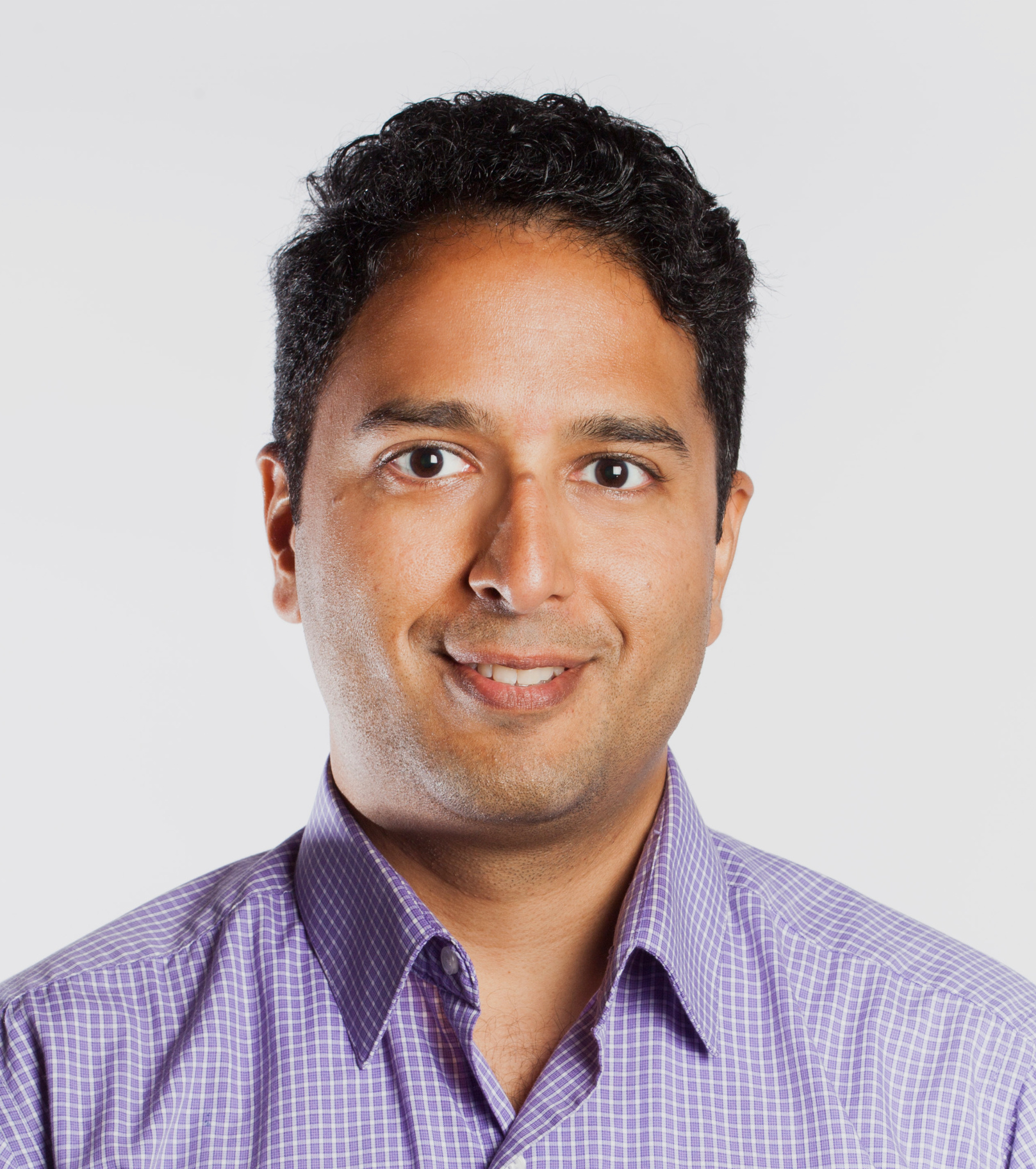
Speaker:
Dhanaraj Thakur
Date:
2022-03-17 12:30:00
Location:
BlueJeans Events
Finding the Sweet Spot: Working At The Intersection Between Research and Technology Policy
ABSTRACT
How can we design research that informs technology policy debates?
How can research help advance human rights advocacy in those debates?
And at the same time how can that research be novel and offer a contribution to the field?
These are some of the factors that guide research in advocacy organizations. In this talk I will discuss some of the ways we address these challenges drawing on practical experiences as well as my research. I will refer to our research in three broad areas - content moderation, surveillance, and disinformation. Specifically, I will share our experiences addressing problems such as detecting harmful content in end-to-end encrypted messaging services, understanding the extent to which school issued devices monitor students and in what ways, and an ongoing project examining the potentially disproportionate impacts of disinformation on women of color political candidates in the U.S. These diverse examples will also demonstrate how we bring together interdisciplinary teams of researchers to tackle these problems and how we create spaces for researchers and policy-makers to learn from each other.
BIO
Dhanaraj Thakur is Research Director at the Center for Democracy & Technology, where he leads research that advances human rights and civil liberties online. Over the last 15 years, he has designed and led several research projects aimed at tech policy audiences and ranging in scope from multi-national studies to community level work. He has been interviewed and his work quoted in several news media, including WIRED, CNN, the WSJ, the Economist, the Guardian (UK), and the Financial Times, among others. In addition, he has published over 35 peer reviewed journal articles, book chapters, and conference papers; as well as reports for several civil society organizations, multilateral development banks, and governments. He holds a PhD in Public Policy from the Georgia Institute of Technology (USA), and is a graduate of the London School of Economics, the University of the West Indies, and the University of Technology in Jamaica.
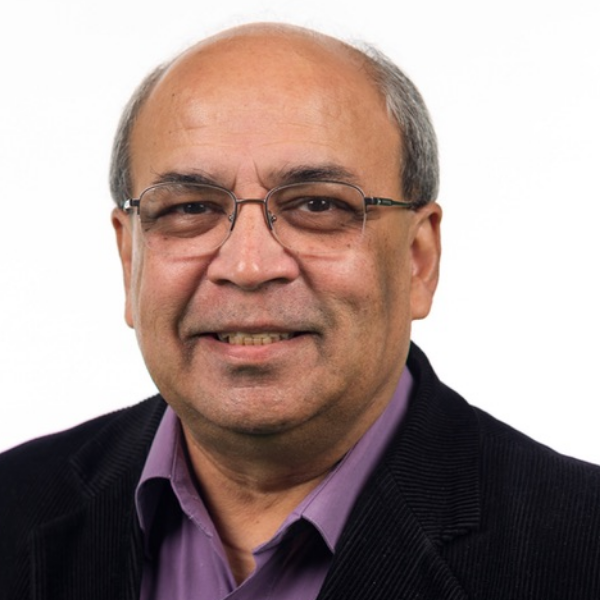
Speaker:
Ashok Goel
Date:
2022-03-10 12:30:00
Location:
BlueJeans Events
National AI Institute for Adult Learning and Online Education: Vision, Goals and Plans
ABSTRACT
NSF has recently established a National AI Institute for Adult Learning and Online Education (AI-ALOE) headquartered at Georgia Tech. The AI-ALOE Institute seeks to address the societal challenges of lifelong learning, workforce development, and reskilling and upskilling of millions of American workers. Online education offers an affordable medium for taking education to workers where they live. AI-ALOE will develop new AI technologies that enhance cognitive engagement, teacher presence, social interaction, and self-directed learning in online education, and thereby improve its quality for adult learners in STEM disciplines. In addition to these use-inspired AI techniques, AI-ALOE will conduct foundational AI research on personalization of learning at scale, interactive machine teaching, mutual theory of mind, and participatory design of sociotechnical systems for responsible AI. I will describe AI-ALOE’s vision, goals and plans, using examples from my research laboratory for illustration.
BIO
Ashok Goel is a Professor of Computer Science and Human-Centered Computing in the School of Interactive Computing at Georgia Institute of Technology and the Chief Scientist with Georgia Tech’s Center for 21st Century Universities. He is also the Executive Director of NSF’s National AI Institute for Adult Learning and Online Education (https://aialoe.org). Ashok is a Fellow of AAAI and the Cognitive Science Society, an Editor Emeritus of AAAI’s AI Magazine, and a recipient of AAAI’s Outstanding AI Educator Award.
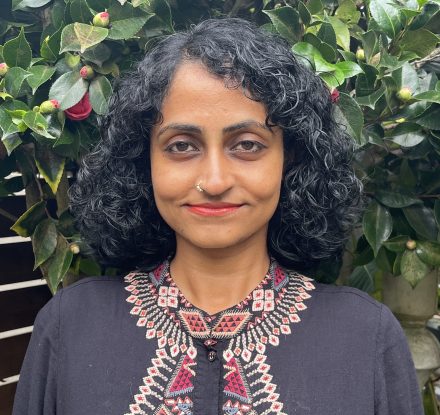
Speaker:
Nithya Sambasivan
Date:
2022-02-24 12:30:00
Location:
BlueJeans Events
The Myopia of Model Centrism
ABSTRACT
AI models seek to intervene in increasingly higher stakes domains, such as cancer detection and microloan allocation. What is the view of the world that guides AI development in high risk areas, and how does this view regard the complexity of the real world? In this talk, I will present results from my multi-year inquiry into how fundamentals of AI systems---data, expertise, and fairness---are viewed in AI development. I pay particular attention to developer practices in AI systems intended for low-resource communities, especially in the Global South, where people are enrolled as labourers or untapped DAUs. Despite the inordinate role played by these fundamentals on model outcomes, data work is under-valued; domain experts are reduced to data-entry operators; and fairness and accountability assumptions do not scale past the West. Instead, model development is glamourised, and model performance is viewed as the indicator of success. The overt emphasis on models, at the cost of ignoring these fundamentals, leads to brittle and reductive interventions that ultimately displace functional and complex real-world systems in low-resource contexts. I put forth practical implications for AI research and practice to shift away from model centrism to enabling human ecosystems; in effect, building safer and more robust systems for all.
BIO
Dr. Nithya Sambasivan is a Research Scientist at PAIR, Google Research and leads the human-computer interaction (HCI) group at the India lab. Her current research focuses on designing responsible AI systems by centering on low-resource contexts. Her influential research is a core contributor to Google's products and strategy for emerging markets, responsible AI public policy, and simultaneously recognized with several best paper awards and nominations at top-tier computing conferences. Dr. Sambasivan has a PhD. in Information and Computer Science from UC Irvine.

Speaker:
Jim McCann
Date:
2022-02-17 12:30:00
Location:
BlueJeans Events
What Do Knitting Machines Make?
ABSTRACT
Industrial knitting machines are used to fabricate many complex objects, including gloves, sweaters, layered cloth, and shaped fiber reinforcement for composites. But, fundamentally, what is it that knitting machines are actually making?
Well, in a topological sense, knitting machines don't make anything at all. Any knit object, fresh off the machine, can be unraveled (continuously deformed) back into straight segments of yarn.
But that's not a very satisfying answer, so in this talk I will eschew such topological nihilism using two different approaches. Viewing knitting through a high-level lens (thinking of stitches as lying on surfaces) one can show that knitting machines can create arbitrary arrangements of 2D tubes and sheets, limited only by a resolution/depth complexity trade-off. Taking a lower-level view, one can freeze certain parts of a knit structure in order to safely deploy the tools of topology and braid theory to explore and transform knitting programs without changing their meaning.
This will be a richly-illustrated, reasonably self-contained romp through the world of knitting design tools and representations, based on both completed and ongoing work in the Carnegie Mellon Textiles Lab (https://textiles-lab.github.io/), with no knitting or computer graphics background required.
BIO
James (Jim) McCann is an Assistant Professor in the Carnegie Mellon Robotics Institute. He is interested in systems and interfaces that operate in real-time and build user intuition; lately, he has been applying these ideas to textiles fabrication and machine knitting as the leader of the Carnegie Mellon Textiles Lab. He received his PhD from Carnegie Mellon in 2010, and worked at Adobe research, as an independent game developer, and at Disney research, before joining Carnegie Mellon as Faculty. He lives about 500ft from the Forbes Ave / Fern Hollow Creek bridge, which collapsed two days before he wrote this bio.

Speaker:
Golnaz Arastoopour Irgens
Date:
2022-02-10 12:30:00
Location:
BlueJeans Events
Co-Designing a Critical Machine Learning Educational Program With and For Children
ABSTRACT
The world is becoming increasingly reliant on artificial intelligence (AI) technologies that collect, store, and analyze our data. Such technologies improve our quality of life, but they also (re)inforce inequities and harm marginalized populations. As digital technologies become more ubiquitous, it will become critical for all young people to have a deep understanding of AI that empowers them to enact change in their local communities and globally. In this talk, I discuss how researchers and children collaborated to develop a critical machine learning after-school education program, in which children explored the social and ethical consequences of large-scale algorithm deployment and applied machine learning content knowledge. Findings show that children were able to 1) explain how biased training datasets could be harmful and 2) build robots for social good that used their own designed classification algorithms. Reflecting on these findings, I argue for the benefits of participatory design methods in designing critical machine learning educational environments, as well as the unresolved tensions that emerge.
BIO
Dr. Arastoopour Irgens is Assistant Professor of Learning Sciences at Clemson University, Director of the IDEA lab, and Vice President of the International Society for Quantitative Ethnography. She is a former middle school computer science and high school mathematics teacher. Her research focuses on (1) designing inclusive digital learning environments focusing on engineering and computer science and (2) using quantitative ethnography to make sense of how learners engage with digital technologies. In her design-based research, she engages in participatory methods that actively involve teachers, students, and community partners working together to co-design digital learning environments that serve their communities.
Video is not available for this event.
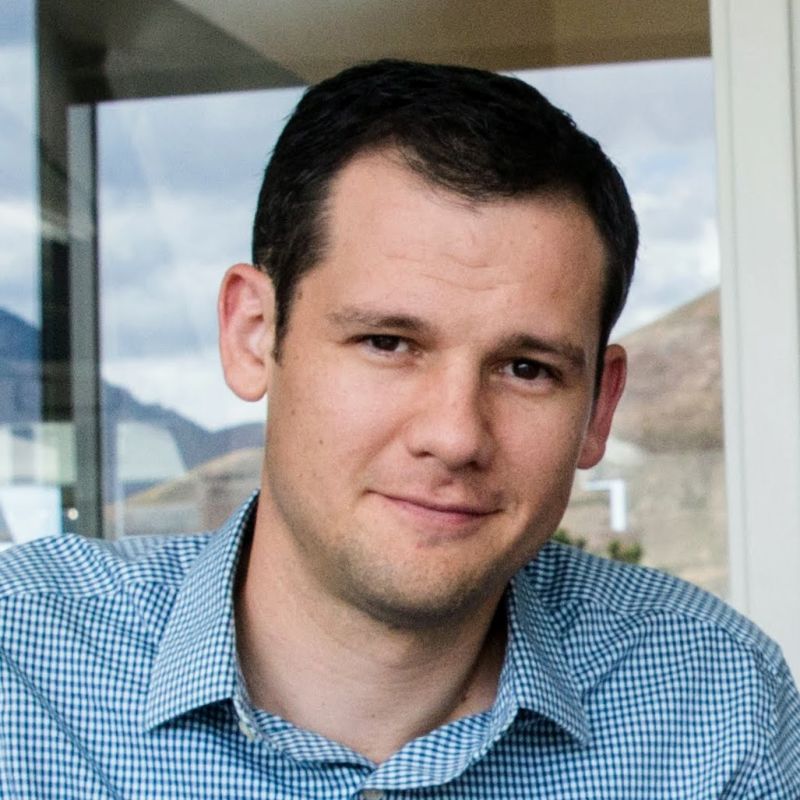
Speaker:
Jason Wiese
Date:
2022-02-03 12:30:00
Location:
BlueJeans Events
Not Just Another User Study: Uncovering Systematic Shortcomings Of Familiar Research Methods
ABSTRACT
Whom does computing serve, whom does it underserve, and do we even know whom we’re missing? Human-computer interaction has matured as a research community with a goal of understanding the effects of technology on people; through that maturity, the research methods we use in the field have mostly stabilized around a familiar and reliable set of qualitative and quantitative methods that help us to take a broad human-centered perspective. But these methods also have limits for what they can tell us about how people might engage with technology, and if we as a field fail to inspect those limits we run the risk of systematically ignoring the needs of end users.
In this talk I explore methodological limitations we have encountered in my research group’s recent projects, including work with individuals who have had a spinal cord injury and a project examining air quality data with parents of asthmatic children. In both cases, there were relatively obvious considerations we needed to make to accommodate research with these participants. However, there was something more subtle lurking underneath: in both cases there were also deeper methodological challenges that would have led to an incomplete picture of those user populations. I argue that researchers and practitioners in human-computer interaction, and more broadly across computing, have a responsibility to interrogate ourselves; to ask in earnest “How do our methods fall short, and whom do we harm in those shortcomings?”
BIO
Jason Wiese is an Assistant Professor in the School of Computing at the University of Utah where he leads the Personal Data and Empowerment Lab (PeDEL). His research takes a user-centric perspective of personal data, everyday computing experiences, and end-user empowerment. His work spans personal informatics, accessibility, privacy, user-centered design, and real-world deployments. Dr. Wiese’s research excellence has been recognized by paper awards at DIS, CHI, and EICS, and through individual awards, including: recognition as a Yahoo Fellow in 2014, the Stu Card Fellowship in 2012, and the Yahoo! Key Scientific Challenges Award in 2011. He publishes work in top Computer Science and HCI venues including CHI, DIS, CSCW, and IMWUT. He received his Ph.D. in Human-Computer Interaction from Carnegie Mellon University in 2015.
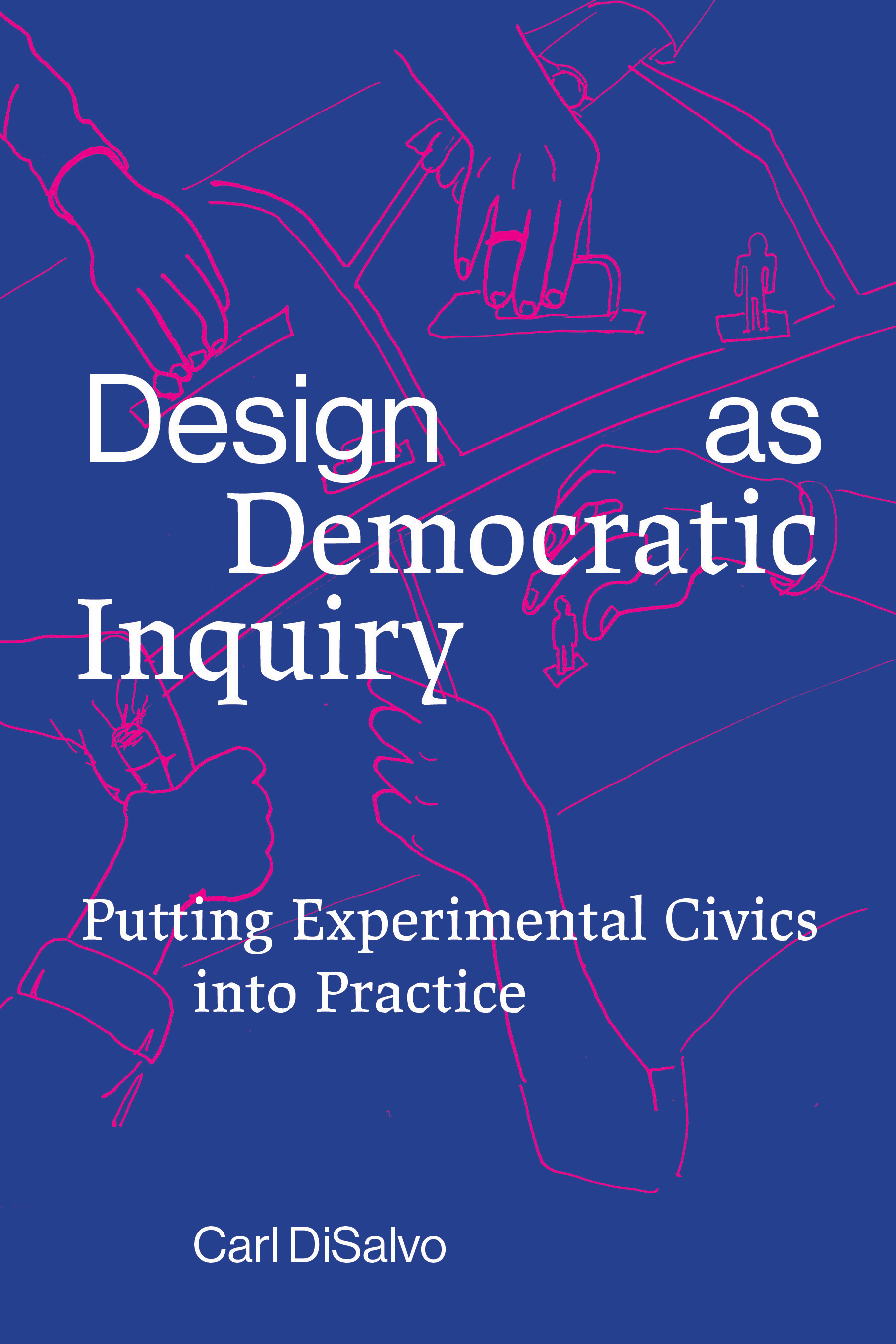
Speaker:
Carl DiSalvo
Date:
2022-01-20 12:30:00
Location:
BlueJeans Events
Design as Democratic Inquiry
ABSTRACT
In this talk, I’ll share my new book, Design as Democratic Inquiry. This book discusses a series of projects grounded in collaborations with communities and institutions. In these collaborations, I explore the potentials and limitations of design to participate in democracy through what I call design experiments in civics. In particular, I explore how, as engaged designers, we might contribute to the work of communities and institutions who explore alternative civic imaginaries, which keep our democracies vibrant. This requires rethinking the stories we tell about design, how we practice design, and how we theorize design. Rather than repeating the heroic tales of innovation, I argue for embracing design as fragile, contingent, partial, and compromised: designing becomes a way to care for our collective futures together.
BIO
Carl DiSalvo is an Associate Professor in the School of Interactive Computing at the Georgia Institute of Technology. His work explores the political qualities of contemporary design, and he is particularly interested in participatory and critical approaches to making and using technology. He is the author of Design as Democratic Inquiry and Adversarial Design, co-editor of Participatory Design for Learning, and an editor of the journal Design Issues.

Speaker:
Lauren Margulieux
Date:
2022-01-13 12:30:00
Location:
BlueJeans Events
Building Theory in STEM Education Research: Spatial Encoding Strategies Theory and Multiple Conceptions Theory
ABSTRACT
Education research frequently calls for theory-building work to better explain the mechanisms of how people learn. This talk discusses two theories developed based on a synthesis of work across multiple education-related fields to explain phenomena frequently seen in STEM education. The first theory, Spatial Encoding Strategy theory, proposes a mechanism to explain how spatial skill training improves generalized problem solving while other forms of brain training produce only localized results. It draws upon work in discipline-based education, cognitive psychology, neuroscience, and learning sciences. The second theory, Multiple Conceptions theory, proposes a mechanism to explain how both direct instruction and constructivist instructional approaches can be designed to guarantee successful results. It draws upon instructional approaches from various STEM fields and educational psychology.
BIO
Lauren Margulieux is an Assistant Professor of Learning Sciences at Georgia State University. She received her Ph.D. from Georgia Tech in Engineering Psychology, the study of how humans interact with technology. Her research interests are in educational technology and online learning, particularly for computing education. She also coordinates an initiative in Georgia State’s teacher preparation programs to integrate computing into pre-service teacher training in all disciplines and directs a computer science endorsement to certify in-service teachers to offer computing courses.



